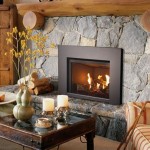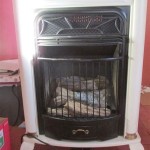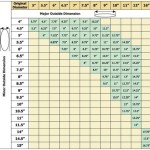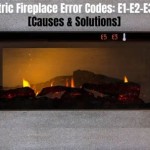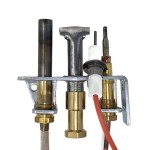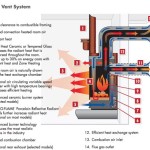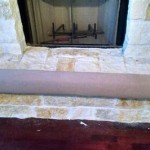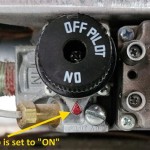Can an Electric Fireplace Heat a House Without Electricity in Tunisia?
The question of whether an electric fireplace can heat a house without electricity, specifically within the context of Tunisia, is a complex one that necessitates understanding the fundamental operating principles of electric fireplaces and the practical realities of power outages and alternative energy sources in Tunisia. Electric fireplaces, by their very nature, rely entirely on electricity to function. They convert electrical energy into heat through resistive heating elements. Therefore, the direct answer to the question is no; an electric fireplace cannot heat a house without electricity.
However, a more nuanced discussion requires exploring alternative scenarios and technological adaptations that might, indirectly, allow an electric fireplace to provide heat during an electricity outage. This involves considering backup power sources, potential modifications to the electric fireplace, and the overall energy landscape in Tunisia.
Understanding Electric Fireplace Operation
Electric fireplaces work on a straightforward principle. They use an electric heating element, typically a resistive coil, which heats up when an electric current passes through it. A fan then blows air across the heated element, distributing the warm air into the room. The visual effect of flames is created using lights and mirrors, or projected images. These visual elements are entirely separate from the heating function and also require electricity to operate.
Therefore, the core function of an electric fireplace – producing heat – is inextricably linked to a continuous and stable supply of electricity. Without electricity, the heating element remains cold, and the fan cannot operate to circulate air. This inherent dependency forms the basis of the primary limitation: electric fireplaces are useless without a power source.
The efficiency of an electric fireplace is typically high, approaching 100%, meaning that nearly all the electrical energy consumed is converted into heat. However, they are not inherently energy-efficient in terms of overall home heating. Their effectiveness is limited to heating a single room or a specific area, making them suitable for supplemental heating rather than whole-house heating. Furthermore, their running cost is directly tied to the price of electricity, which can be a significant factor in Tunisia, particularly during peak demand periods.
The Tunisian Energy Landscape and Power Outages
Tunisia's energy sector is heavily reliant on fossil fuels, primarily natural gas, for electricity generation. While the country is making efforts to diversify its energy sources with renewable energy projects, such as solar and wind power, these sources currently contribute a relatively small percentage of the total electricity supply. This dependence on fossil fuels makes Tunisia vulnerable to fluctuations in global energy prices and potential supply disruptions.
Power outages, while not a daily occurrence, are not uncommon in Tunisia, particularly during periods of high electricity demand, such as the summer months when air conditioning usage peaks. These outages can be caused by various factors, including grid overload, equipment failures, and maintenance work. The duration of these outages can vary from a few minutes to several hours, causing inconvenience and disruption to daily life.
Given this context, the reliance on an electric fireplace as a primary heating source during a power outage in Tunisia is fundamentally impractical. The fireplace will simply not function without electricity, leaving the occupants without a heat source. Therefore, alternative heating solutions are crucial for households in Tunisia to prepare for potential power outages.
Potential Solutions and Considerations
While an electric fireplace cannot directly heat a house without electricity, several alternative solutions and indirect approaches could be explored to mitigate the impact of power outages on heating needs in Tunisia.
1. Backup Power Systems: The most direct solution is to invest in a backup power system, such as a generator or a battery-based energy storage system. A generator, typically powered by gasoline or diesel, can provide electricity to the house during a power outage, allowing the electric fireplace to function. However, generators require regular maintenance, fuel storage, and can be noisy and emit pollutants. A battery-based energy storage system, charged by solar panels or the grid, can provide a cleaner and quieter alternative. These systems store electricity and release it when the grid is down. The size of the battery system needs to be adequately sized to handle the power requirements of the electric fireplace and other essential appliances. However, the initial investment cost for these systems can be significant.
2. Alternative Heating Appliances: Instead of relying solely on an electric fireplace, households can invest in alternative heating appliances that do not require electricity. These include gas heaters (requiring a propane or butane supply), kerosene heaters, or wood-burning stoves. However, these options come with their own set of considerations. Gas and kerosene heaters require proper ventilation to prevent carbon monoxide poisoning. Wood-burning stoves require a supply of firewood and careful attention to fire safety. Furthermore, the use of these appliances may be subject to local regulations and safety standards.
3. Passive Heating Strategies: Implementing passive heating strategies can significantly reduce the need for active heating, particularly during power outages. These strategies involve designing or modifying the house to maximize solar heat gain and minimize heat loss. South-facing windows can capture sunlight during the day, providing warmth. Proper insulation of walls, roofs, and floors can reduce heat loss. Weatherstripping around doors and windows can prevent drafts. Thermal mass materials, such as concrete or brick, can absorb and store heat during the day and release it at night. These passive heating strategies are effective in reducing the overall heating demand and minimizing the reliance on electric appliances.
4. Thermal Management and Insulation: Regardless of the heating system used, effective thermal management is crucial. Proper insulation is the cornerstone of maintaining a comfortable indoor temperature, particularly during power outages when active heating options are limited. Insulating walls, ceilings, and floors reduces heat loss in the winter and heat gain in the summer. Double-paned windows and insulated doors further minimize heat transfer. By reducing the rate of heat loss, the house retains warmth for longer periods, minimizing the need for supplemental heating.
5. Solar Water Heating Integration: While not directly related to electric fireplaces, solar water heating systems can contribute to overall home heating efficiency. Solar water heaters use solar energy to heat water, which can then be used for domestic hot water needs and, in some cases, for radiant floor heating. By reducing the demand for electricity to heat water, solar water heaters free up electricity for other uses, such as running an electric fireplace if a backup power system is available. Furthermore, integrating a solar water heating system with a thermal storage tank can provide a reserve of hot water that can be used for heating during a power outage.
In conclusion, while an electric fireplace cannot directly function without electricity, strategic planning and investment in alternative solutions can mitigate the impact of power outages on heating needs in Tunisian homes. The optimal approach will depend on individual circumstances, budget constraints, and local energy conditions. A combination of backup power systems, alternative heating appliances, passive heating strategies, and improved thermal management is likely to be the most effective solution.

3 Alternate Heat Sources For A Power Outage Advantage Airtech

Electric Fireplaces A Safe Alternative To Gas Touchstone Home S Inc

Recessed Or Wall Mount Electric Fireplace Installations Explained Touchstone Home S Inc

An Electric Fireplace For Every Room Touchstone Home S Inc

How To Make An Electric Fireplace Insert Look Built In Sunnydaze Decor

Why Electric Fireplaces Are Better Touchstone Home S Inc

A Heat Storing Fireplace As Home Or Cottage Heating Solution Nunnauuni

Electric Fireplace Inserts Freestanding Heater For Togo Ubuy

Touchstone 80006 Forte Recessed Electric Fireplace With 1500w Heat Black Home S Inc

Touchstone Sideline 72 Inch Recessed Smart Electric Fireplace 80015 Home S Inc
Related Posts

